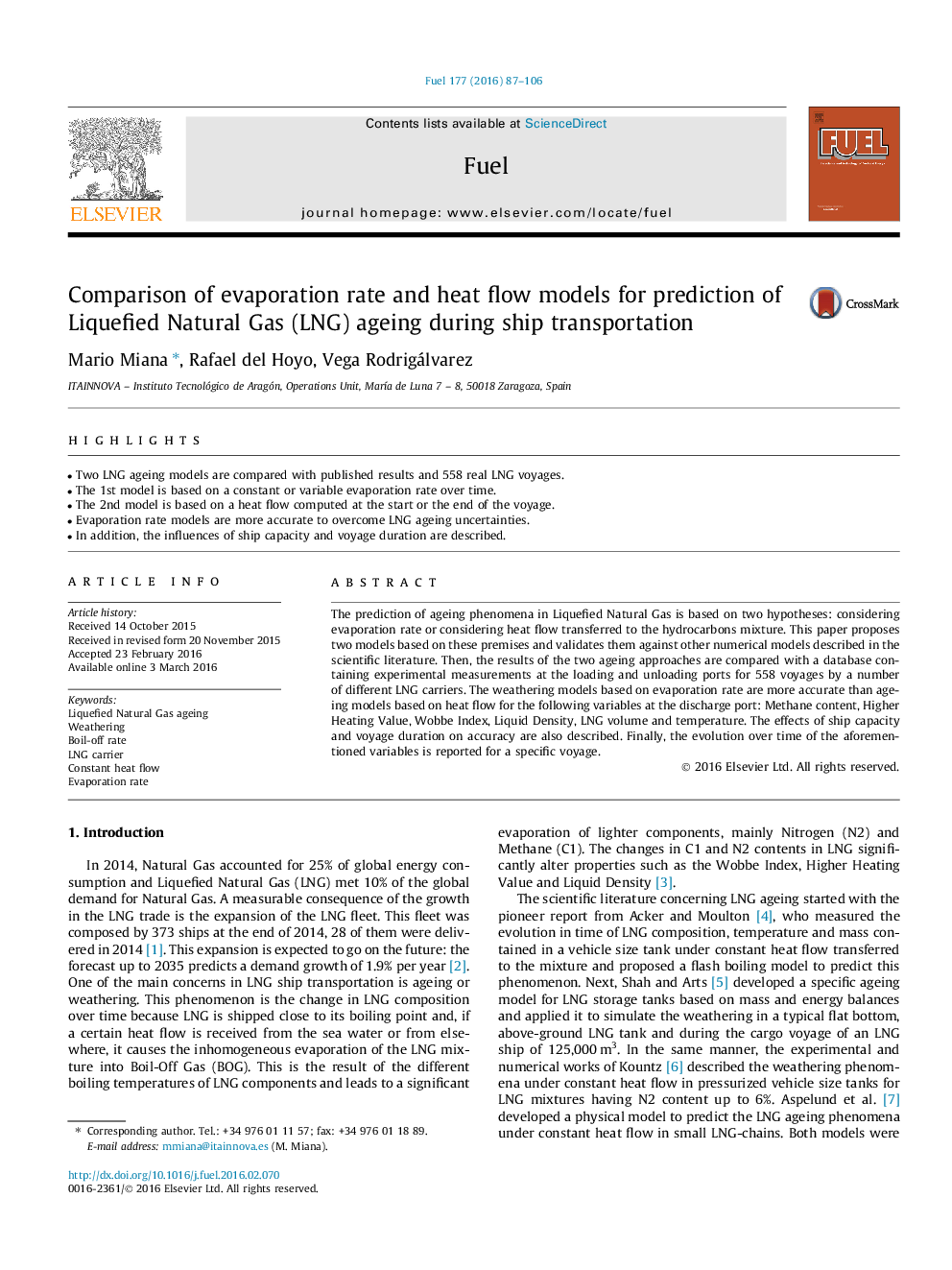| Article ID | Journal | Published Year | Pages | File Type |
|---|---|---|---|---|
| 205120 | Fuel | 2016 | 20 Pages |
•Two LNG ageing models are compared with published results and 558 real LNG voyages.•The 1st model is based on a constant or variable evaporation rate over time.•The 2nd model is based on a heat flow computed at the start or the end of the voyage.•Evaporation rate models are more accurate to overcome LNG ageing uncertainties.•In addition, the influences of ship capacity and voyage duration are described.
The prediction of ageing phenomena in Liquefied Natural Gas is based on two hypotheses: considering evaporation rate or considering heat flow transferred to the hydrocarbons mixture. This paper proposes two models based on these premises and validates them against other numerical models described in the scientific literature. Then, the results of the two ageing approaches are compared with a database containing experimental measurements at the loading and unloading ports for 558 voyages by a number of different LNG carriers. The weathering models based on evaporation rate are more accurate than ageing models based on heat flow for the following variables at the discharge port: Methane content, Higher Heating Value, Wobbe Index, Liquid Density, LNG volume and temperature. The effects of ship capacity and voyage duration on accuracy are also described. Finally, the evolution over time of the aforementioned variables is reported for a specific voyage.
